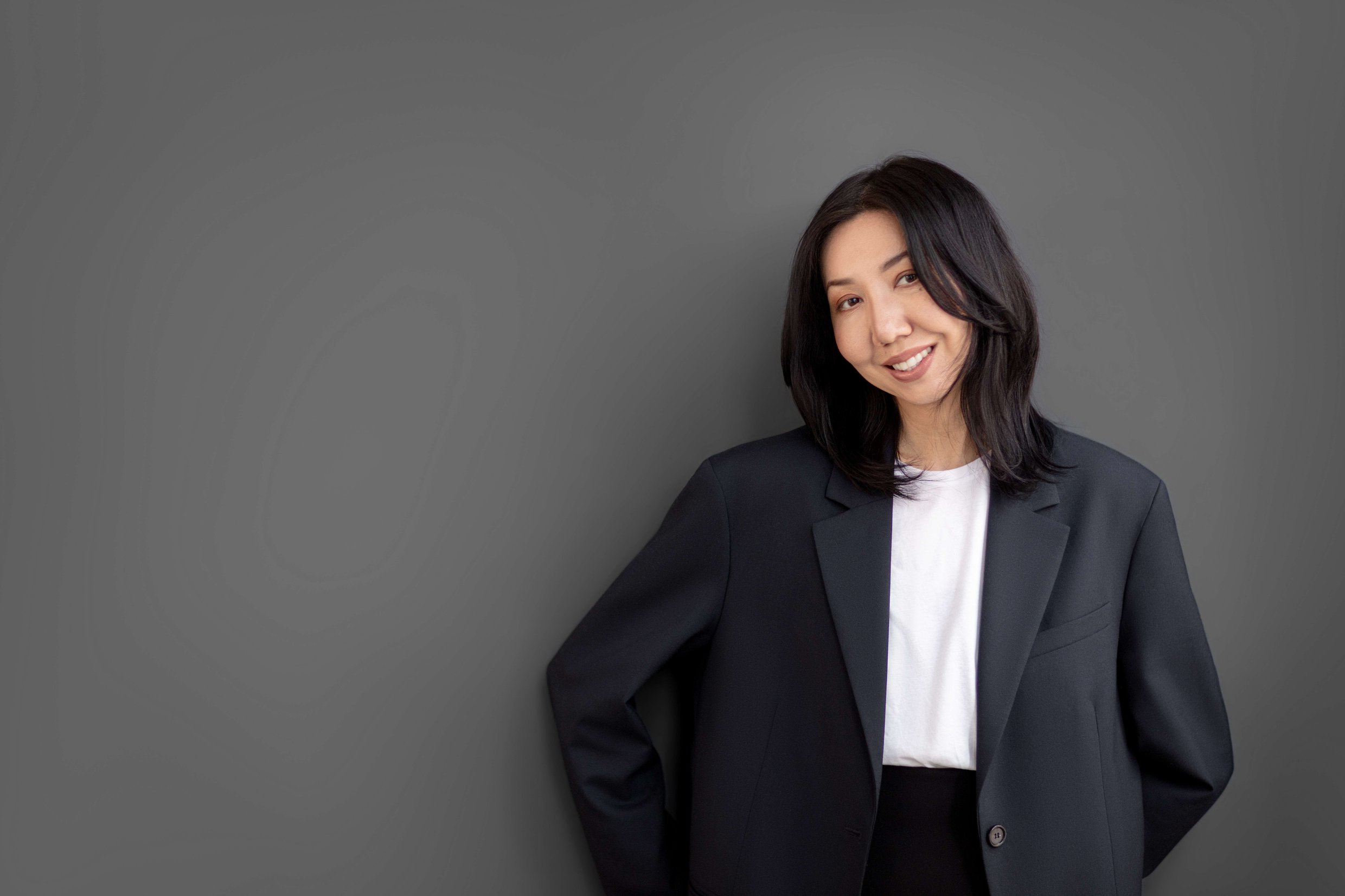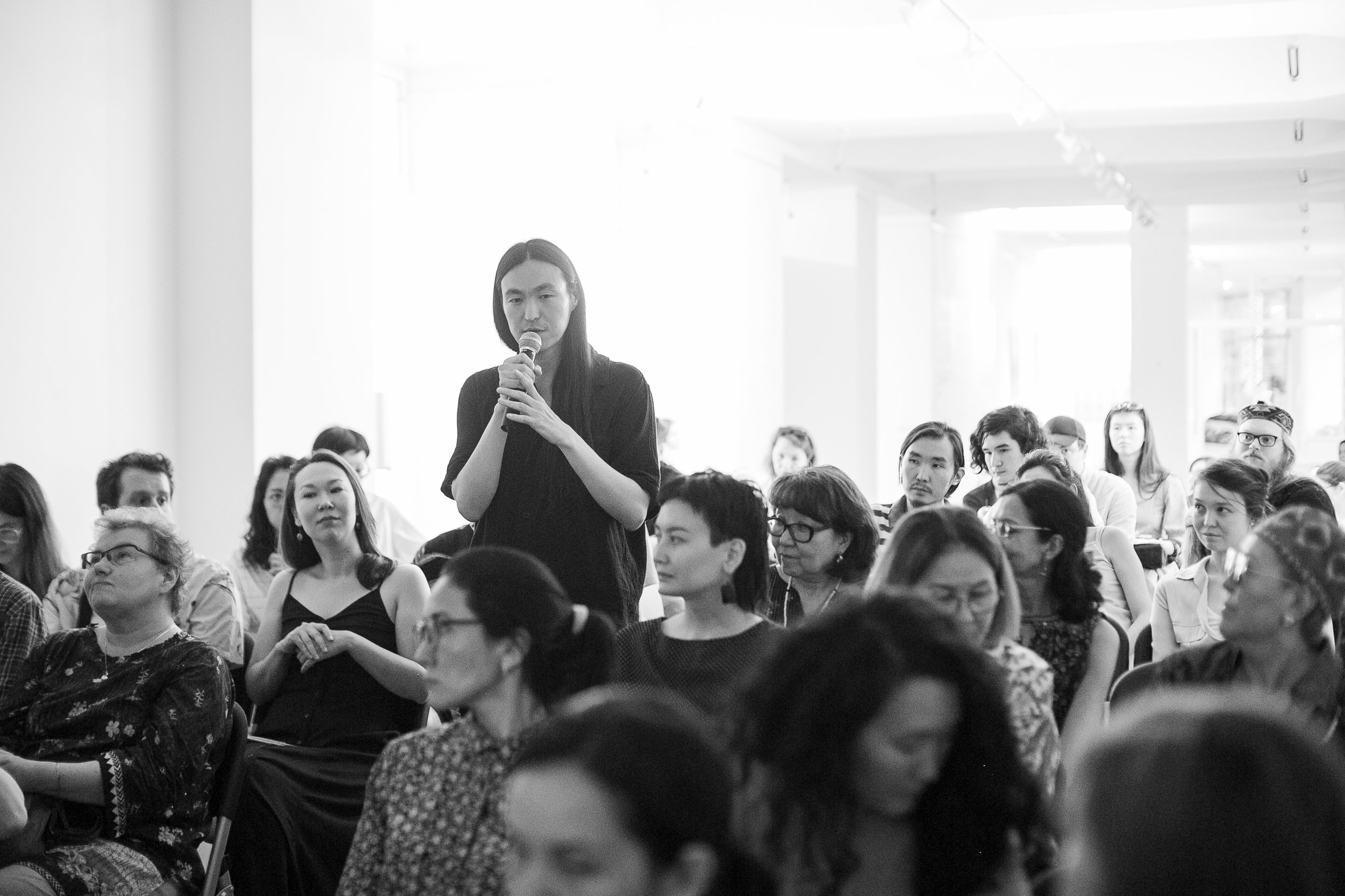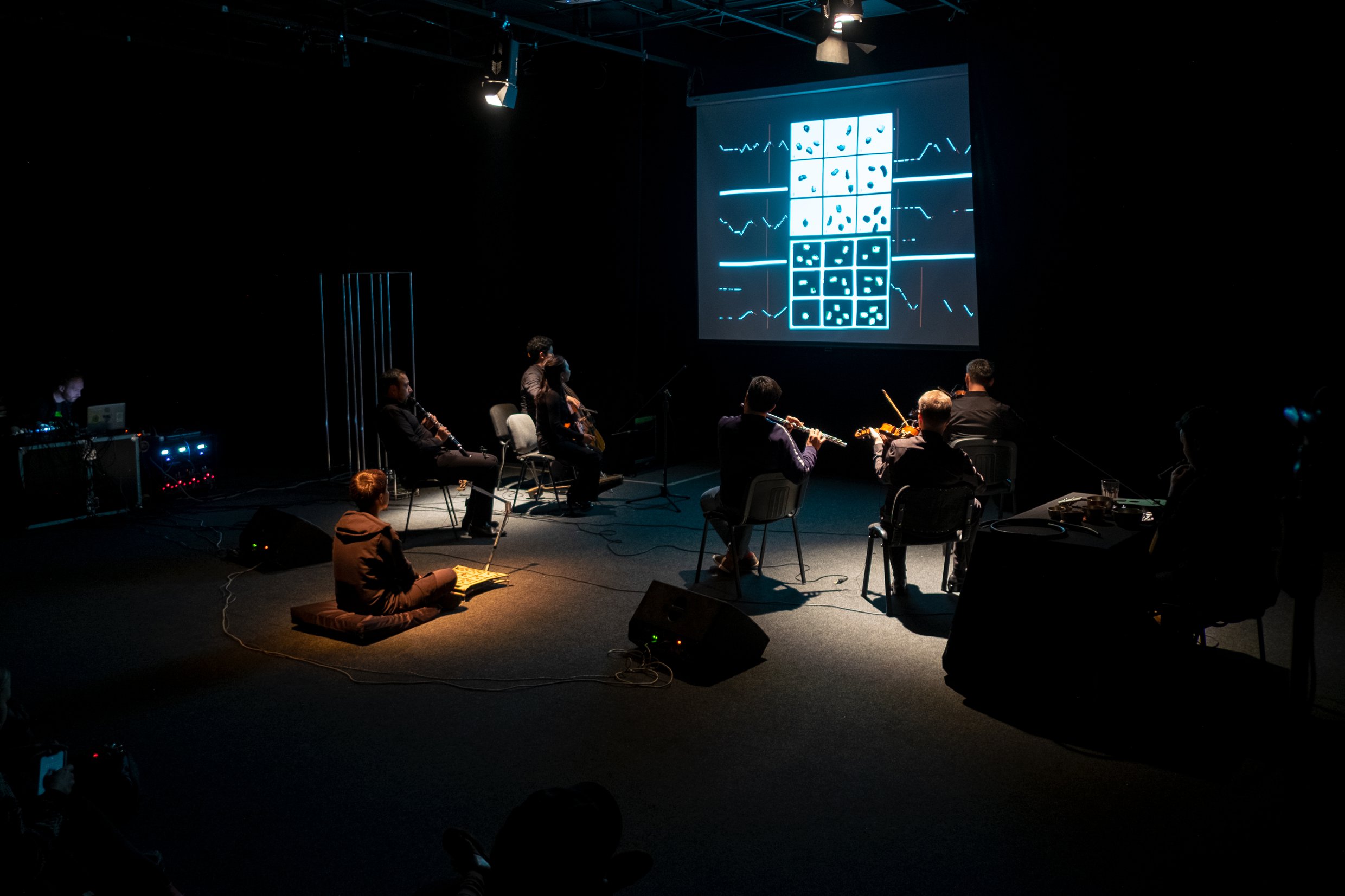"Our main goal is to empower the local public and enhance an intellectual artistic community"

Tselinny Center of Contemporary Culture is a regional institution that aims to empower the local general public and enhance an intellectual community by building a dialogue within Kazakhstani latitude and therewith the wider central Asian perspective. Tselinny Center unites contemporary artists, emerging theorists, and scholars for open reflection and critical debate on its platform.
Tselinny Center of Contemporary Culture was founded in 2018 by a Kazakh businessman and entrepreneur Kairat Boranbayev as the country’s first private cultural institution. The center has been operating since 2018 and will move in 2025 to its permanent venue at a former cinema building after which it was named.
Tselinny Center of Contemporary Culture is led by Jamilya Nurkalieva, Director, and Alima Kairat, Artistic Director.
Interview with Jamilya Nurkalieva, Director at the Tselinny Center of Contemporary Culture in Kazakhstan, a Patron of CIMAM since January 2024.
Could you tell us about the main mission of Tselinny Center of Contemporary Culture and how it approaches interdisciplinary interaction between culture and contemporary art?
Our main goal is to empower the local public and enhance an intellectual artistic community. Our artistic strategy is based on the symbiosis between two motifs of Here and Now, a performative and research programme. Here is about a physical space where various formats of events are happening such as art exhibitions, film programmes, Tselinny studies, contemporary music and dance programmes and any other experimental forms of artistic expression. Now is based on the research projects that are occuring in the moment and continuously in the future to create an intellectual space enhanced by engagements with artists, theorists and public intellectuals from various disciplinary, cultural, social and ideological perspectives. In simple words Now serves as a tool for the realization of a wide Here programme.

Tselinny Center of Contemporary Culture aims to promote dialogue and expand the local intellectual community in Kazakhstan and Central Asia. Could you highlight some key programs the center carries out to achieve this?
There are three main lines of activities in the research programme which are Horizon, Scholar-In-Residence and Tselinny Publishing projects. Horizon is an online research platform of Central Asian contemporary art and theory which includes an anthology and a digital dataset Documentation, so if you are interested to know what is our local history of contemporary art you are welcome to visit this platform. Horizon anthology critically exploring “gray zones” of history of contemporary art of the region through the series of comprehensive video-essays, articles and researches produced by local artists, scholars and cultural practitioners.
The Scholar-In-Residence programme aims to build up meaningful relations between local artists and local/international academia. We all know that often academic knowledge exists only in its own isolated world, without properly reaching out to the targeted audience. We thought scholars coming here could have an easy access to our artistic scene and this is happening. Same with the Publishing programme we work with local and international scholars bringing their expertise here.
Tselinny works as a platform which gives possibilities for various communities to connect on our platform, or/and create projects together. Within 1st edition of Korkut Triennale in 2022 we have worked together on a concert called “Music of Fulfillment 41”, which was a sophisticated collaboration between EEGERU contemporary music ensemble, techno queer club bULt, and artist ::vtol:: (Dmitry Morozov). During the performance, Sabina from bULt made a traditional nomad kumalak divination on the special board. An algorithm transformed these compositions into scores for musicians from EEGERU and bULt and the “prepared” noise of drones. It was described by the artists as “an attempt to discover what rReality is, by peering together at the meanings of random symbols and listening to the form the sound takes after them.”
Another important element of community work is interaction with our neighborhood. Tselinny building is surrounded by 11 universities, St. Nicholas Cathedral, Police office, a construction market, a housing complex and schools. Tselinny creates activities and events for our neighborhood in Almaty to have an opportunity to hear different voices and cultures documenting and preserving memories. One of such events was our time capsule that we have done in 2021, where Tselinny sent a message to the future along with everyone who wanted to participate. Via open call we have given 54 film cameras to 54 participants, each containing 27 frames with a shutter speed of 1/120 second. The guest curator of the project is Alexander Ugay, a photographer and video artist, who in his works reveals the themes of memory and nostalgia, the interaction of history with today's reality and with the future. A project is called “12 seconds”. It is a portrait of our era, the nature of the time, people, images of the city that will be sent into the future. Over three decades, photographs of random people will acquire new meanings and be filled with interpretations that are still unknown to us, which will help new generations better understand our reality. We hope to open and develop photographs from the time capsule in 2051.

The center's strategy focuses on three key themes to create processes in the artistic, academic, and scientific environment, which are "gender," "faith," and "ecology." Could you explain why these three themes were chosen?
Gender is an obviously important topic in our focus. Within these 30 years of independent Kazakhstan we must admit that the gap between tradition and reality is quite huge. The condition of post soviet islam is poorly researched and mostly represented in the practice of contemporary art of course we want to contribute to these studies - academically and artistically. Same with faith,Kazakhstan is a home for 124 nations and our mission is to analyse how we lived, live now or even how we shall live together in this diversity. Ecology, is the most vital globally wherever we live, but specifically for Kazakhstan, as we have a difficult heritage coming from the Soviet past - Semipalatisk was a polygon of nuclear bomb testing, shrinking of the Aral sea and even the soviet project Tselina are just a few examples. Tselinny cinema was named after a Tselina or Virgin Lands project - a state development and resettlement campaign to turn the lands into a major agriculture producing region. Virgin Lands Campaign led Kazakhstan to major ecological catastrophes that we are not able to solve now. These environmental problems arose as a result of the virgin and fallow lands development in Kazakhstan in the second half of the twentieth century that has made serious changes in the nature of the whole region. It was not only soil erosion and land degradation, but also increased water consumption, discharge of the wastewater into rivers, damage to flora and fauna and a mass migration of people to Kazakhstan, which also resulted in death of many people, distuction of families.
We understand and realise what is the connotation and painful heritage of the word Tselina. However, it was our conscious decision to keep the name and attempt to change its meaning. We feel that it is our responsibility to work with our tragic history and rethink it. It is important not to cancel it, ignore or forget about it by changing its name. A deeper involvement through heeling, building trust to be capable of imagining our future. The devotion to interdisciplinary regional research is our major commitment that helps us to live without a denial or will of rewriting history, but with a strong belief that we can decolonize our given name and not reinvent the meaning but own it and reclaim that notion.
As one of the central themes the center focuses on is "ecology," could you share how the center commits to sustainability in its operations and programs?
In Tselinny’s center operational works we aim to recycle rainwater, do waste sorting, use EDMS and support local producers. In terms of programmes we are planning an exhibition in spring of 2025 about transboundary rivers of Central Asian Region this year.
First of all, the idea of the show is to have a scientific point of view on problems of water of Central Asian Region, but also to include the notion of what is our region, the real boarders - ecological, cultural, political. We will curate a series of workshops with scientists, activists and artists to get something from each other. As at CMS COP14 this year in Samarkand they manifested that Nature has no boarders, we want to reflect this and try to model climate change in 30 year horizon - to see what we can do now from our position.
What was the main motivation for the Tselinny Center of Contemporary Culture to join CIMAM, and how do you think this partnership will benefit the center in achieving its goals?
We are happy to be a part of CIMAM’s huge professional community, we are super motivated to exchange with ideas or practices, we hope we can make our contribution to create a dialogue with our region, to doubt and to question together, reflecting about what is it to be a human in society, in a state, or in space and time.
CIMAM offers professional development opportunities through workshops, training programs, and access to research and resources. These opportunities contribute to the continuous growth and learning of an organization's staff, enhancing their expertise and ability to address the evolving needs of the art world. As a collective voice, CIMAM advocates for the importance of modern and contemporary art and the role of museums in society. Through its advocacy efforts, CIMAM raises awareness about the value of art institutions, supports policies that promote accessibility and cultural diversity, and addresses challenges faced by museums globally.
Read the welcome article about Tselinny Center of Contemporary Culture to know more